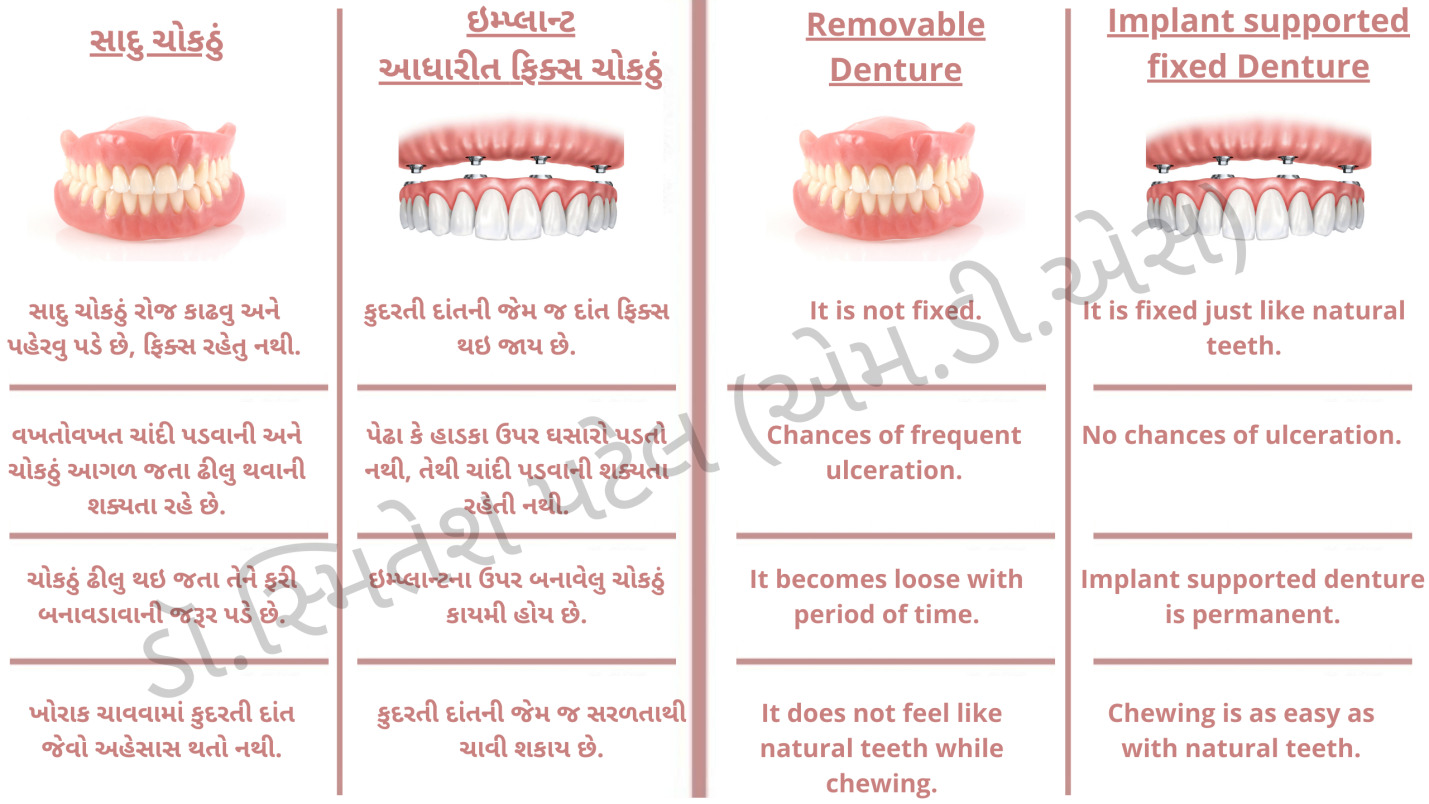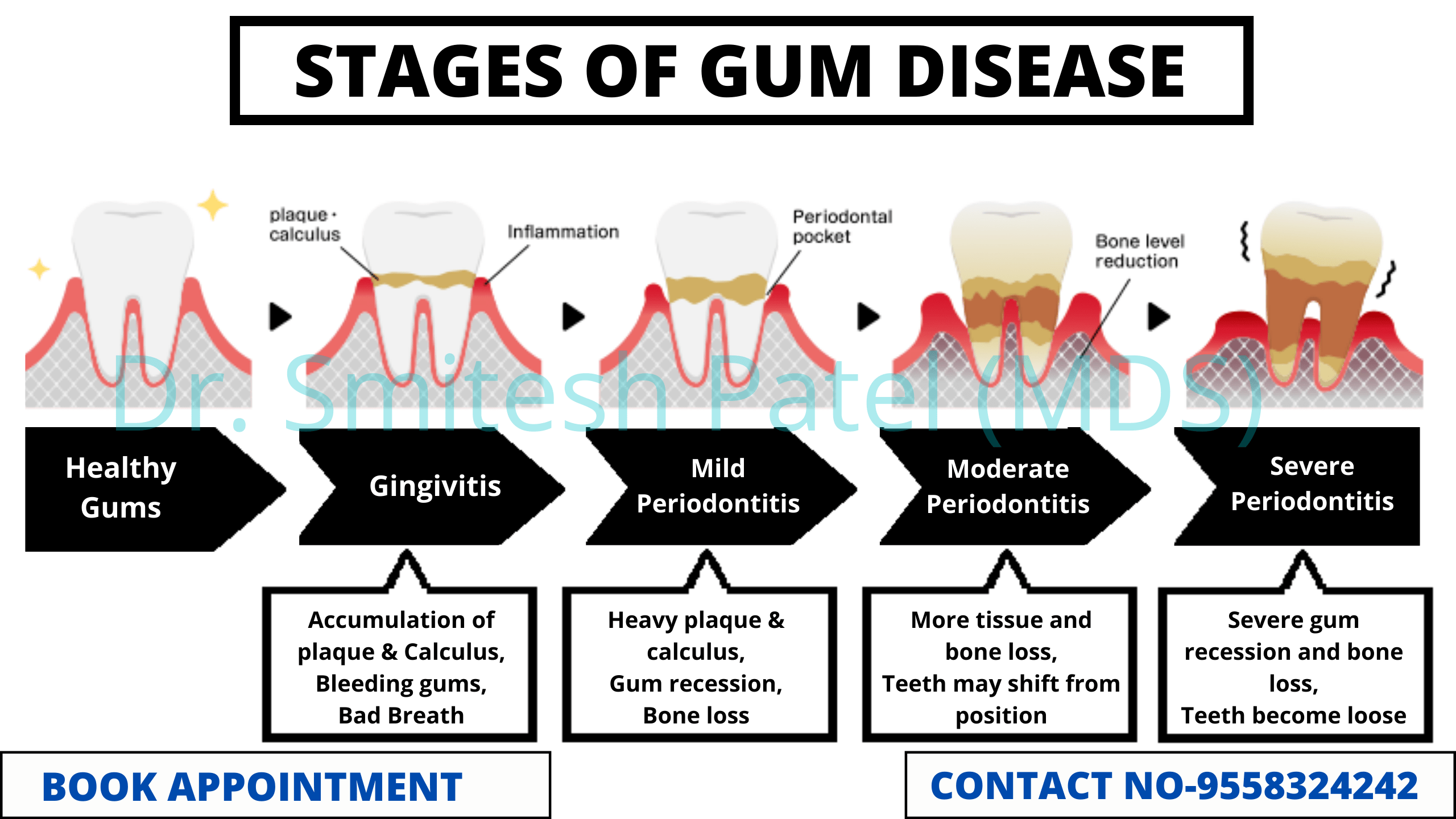Healthy teeth are very important to enjoy food and eat better. At older age teeth play pivotal role to maintain general health of an individual. So it is necessary to go for a right choice of teeth replacement to be healthy.
There are generally two types of options for full mouth teeth replacement, one is denture and other is Implant supported fixed teeth.
DENTURE-
Dentures are the removable artificial teeth that are used to replace teeth. Dentures are not fixed, that is why it needs to be removed and wear every day.
IMPLANT SUPPORTED FIXED TEETH-
It is a set of teeth which is fixed in the mouth with the support of implants. Implants mimic the function of real teeth and are permanent, durable, and fixed. The titanium implant fixture fuses to the natural bone in one’s jaw through a process called osseointegration and stops bone loss.
Why implant supported fixed teeth are better choice than dentures?
There are frequent chances of ulceration with denture as it rests on tissue surface in mouth, while with Implant supported teeth there is no such problem.
Denture becomes loose with period of time so it needs to be changed, but there is no need to replace implant supported teeth periodically as implants fuse with bone of jaw.
Implant gives you feel of natural teeth while chewing, talking, smiling or laughing so it is more comfortable, easy and convenient, while denture needs special precautions during laughing or chewing.
That is why Implant supported teeth are one for all solution for replacement of your teeth compared to denture.
- SMITESH PATEL (MDS)
Laxminarayan Dental Clinic,
Gandhinagar, Gujarat, India.
Mobile no- +919558324242





